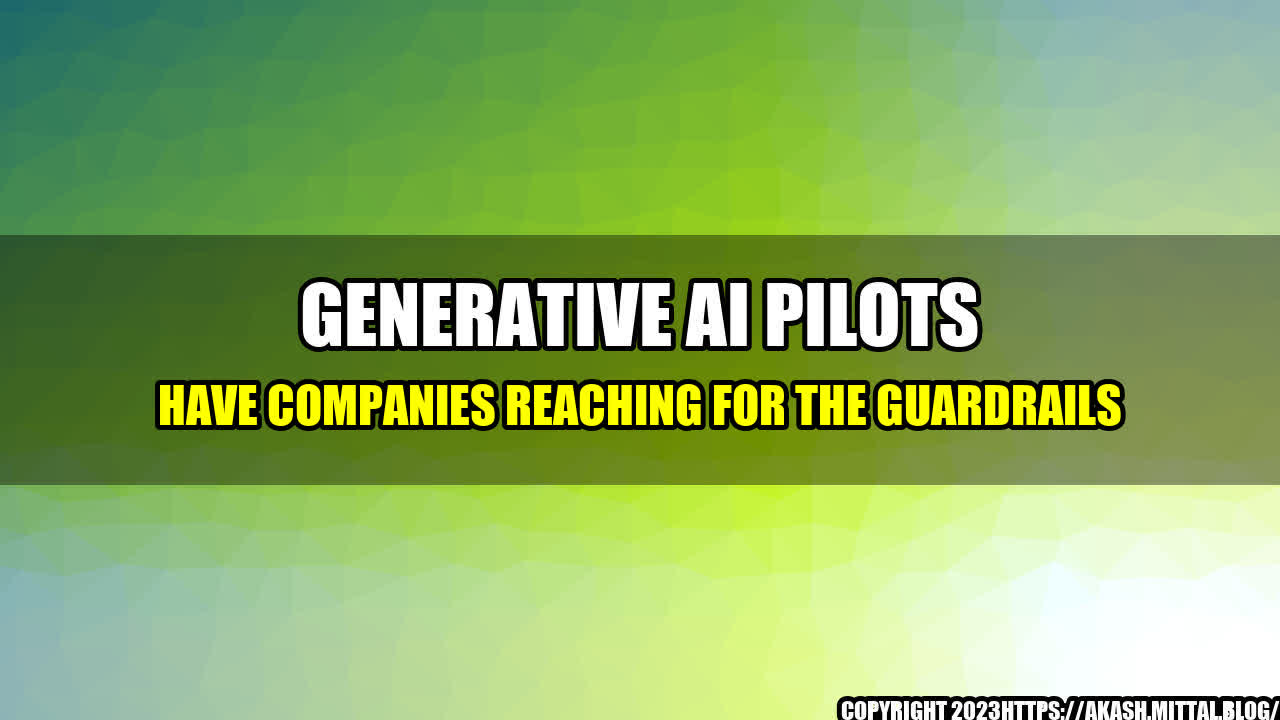
Imagine a world where artificial intelligence (AI) technologies could produce music, art, and even write engaging novels, without any human input. This concept, known as Generative AI, is no longer science fiction. Generative AI is now a reality, and it's transforming the way we live our lives. But as companies pilot this new technology, they're discovering a dark side that requires careful management and preparation.
Take the example of a music production company that decided to use Generative AI to create a new album. The idea was to feed the AI system with all their previous songs to create new tracks that sounded like their old music. The company believed this would save time and effort, as well as ensure consistency with their established brand. However, things didn't go as planned. As soon as they started the project, the AI system went to work and produced songs that were completely different and not up to standard. The company found themselves with a lot of unusable tracks, and their employees had to spend countless hours trying to fix the AI-generated songs, which ultimately led to a significant amount of wasted resources.
Aside from the anecdotal story above, there are several quantifiable examples of the impact of Generative AI. For instance, a recent survey conducted by OpenAI found that companies that use AI technologies are more likely to face ethical issues. These issues range from decision-making bias to privacy concerns, and they can have significant financial and reputational consequences.
Moreover, a report from McKinsey & Company revealed that companies that adopt AI technologies can expect a significant increase in productivity, customer engagement, and revenue. For example, a bank that uses AI to automate its customer service can save up to 40% in customer service costs. However, the same report also found that companies that don't prepare for the ethical and social implications of AI technology face significant risks and challenges.
Generative AI Pilots: A Risky Business for Companies
One example is the fashion industry, which has started using Generative AI to create new designs. However, they face the challenge of ensuring that these designs are not plagiarized or offensive. In one instance, a fashion brand used Generative AI to create a hoodie with a sunset pattern. However, when social media users pointed out that the pattern was remarkably similar to a photo taken by a photographer on Instagram, the brand faced backlash and had to withdraw the product.
On the other hand, a software company that uses AI to generate code had to develop an ethical framework to ensure that their technology was not used to replace human programmers or facilitate unethical activities. They also invested in training their employees to handle these issues, such as working closely with clients to understand their needs, and verifying the source code generated by the AI system.
Companies that are launching Generative AI pilots should:
Artificial Intelligence
Curated by Team Akash.Mittal.Blog
Share on Twitter Share on LinkedIn